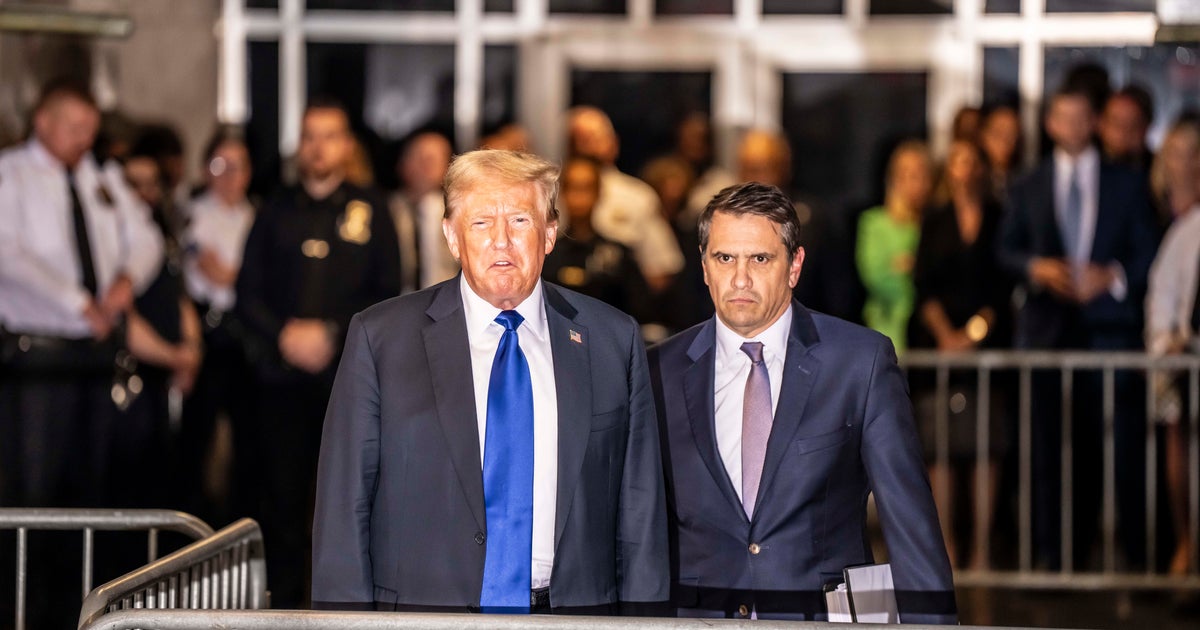Judge orders Trump administration to stop detaining migrant children in hotels prior to expelling them
A federal judge on Friday ordered the Trump administration to end the controversial practice of holding migrant children in hotel rooms while arrangements are made for them to be summarily expelled from the U.S. under an unprecedented pandemic-era border restriction.
Judge Dolly Gee of the U.S. District Court in Los Angeles ruled that minors held at these hotels are entitled to the legal protections enshrined in the landmark Flores Settlement Agreement, which sets certain rules for the care and detention of migrant children in U.S. custody. Among other safeguards, the 1997 court settlement guarantees minors access to lawyers and requires the government to hold them in safe and sanitary facilities licensed to care for children while continuously pursuing their release from custody.
Gee said the use of hotels for detention purposes violates the Flores agreement because the locations lack sufficient oversight, state licenses to hold minors and standards for the care of young children. Minors have also faced a "woefully inadequate" process to seek the help of lawyers, who have been barred from entering the hotels, Gee added, citing declarations from attorneys who said they struggled to reach detained children.
While she acknowledged the government may need to adopt emergency measures to contain a global pandemic, Gee said that could not be used as an "excuse for DHS to skirt the fundamental humanitarian protections that the Flores Agreement guarantees for minors in their custody."
"Defendants cannot seriously argue in good faith that flouting their contractual obligation to place minors in licensed programs is necessary to mitigate the spread of COVID-19," Gee wrote in her order.
Agreeing to a request from Justice Department lawyers, who expressed concerns about the government's ability to comply with her mandate immediately, Gee delayed her order's effective date to next week and gave the administration until September 15 to halt the large-scale hotel detention of children.
Gee's ruling, if upheld, will pose a significant logistical and legal hindrance to the secretive hotel detention system the Trump administration has expanded during the coronavirus pandemic to facilitate the rapid expulsions of unaccompanied migrant children and families. A spokesperson for the Justice Department, which could appeal Gee's order, did not respond to a request for comment.
Citing a directive issued by the Centers for Disease Control and Prevention (CDC) issued in mid-March with the stated objective of curbing the spread of COVID-19, U.S. officials at both land borders have been swiftly expelling most unauthorized migrants, regardless of their age or intention to apply for U.S. humanitarian refuge.
While single migrant adults are being expelled directly to Mexico or Canada, hundreds of unaccompanied children and families with minors have been held in hotel rooms while they await to be returned to their home countries on flights chartered by U.S. Immigration and Customs Enforcement (ICE). Inside these hotels, children and families are supervised by private contractors hired by ICE and generally not allowed to present their case for asylum if they fear returning to their home countries, according to attorneys and court documents.
Between March and July, at least 660 migrant minors, 577 of them unaccompanied, were held in more than 25 border-area hotels, according to court documents. Many of the unaccompanied minors held at hotels were teenagers, but some were as young as 10. Gee's order applies to both unaccompanied children and those detained with their parents.
The Justice Department had argued that children awaiting expulsion are not covered under the Flores agreement because they are processed under a public health order, rather than regular immigration laws. Gee rejected the government's argument on Friday, noting that DHS officials, and not CDC personnel, are the ones who process and detain minors and ultimately decide whether they should be expelled.
"DHS cannot evade its obligations under the Flores Agreement by hiding behind a different statute while exercising unfettered discretion over the minors within its care," she wrote.
A 2008 bipartisan anti-trafficking law requires all government agencies, including Customs and Border Protection (CBP) and ICE, to promptly transfer most unaccompanied migrant children to the Office of Refugee Resettlement and its network of licensed shelters and housing facilities. Once in the refugee agency's custody, minors can apply for asylum or other forms of humanitarian refuge while waiting to be released to sponsors, like family members living in the U.S.
Citing the CDC order, the Trump administration has argued it can exclude unaccompanied minors from this process. On Friday, the administration published the text of a final rule that would codify the CDC's authority to direct DHS to expel unauthorized migrants during a pandemic. The rule argued that unaccompanied children processed under public health authorities are generally not entitled to safeguards in the 2008 anti-trafficking law or the Flores settlement.
"This regulation makes it clear that the CDC is fully complicit with the Trump administration's use of the COVID-19 pandemic to turn away refugees," Aaron Reichlin-Melnick, a policy counsel at the American Immigration Council, told CBS News.
Gee on Friday ordered the administration to transfer underage migrants to licensed facilities within 72 hours of their apprehension, effectively requiring DHS to send unaccompanied children to the Office of Refugee Resettlement, the only government agency that has facilities licensed to care for minors. It is unclear where families with children will be sent since the three family detention facilities ICE operates are not licensed.
DHS officials did not immediately respond to a request for comment. A spokesperson for ICE said the agency was aware of Gee's order. "ICE is evaluating the court's decision but is unable to comment further due to ongoing litigation," the spokesperson added.
Friday's ruling also requires the administration to allow lawyers in the Flores case, as well as independent monitors Gee appointed, to visit facilities where minors processed under the CDC order are held to conduct interviews and oversight.
"We are thrilled that the Court unequivocally stripped away the government's legal fiction that these children are not in 'immigration custody,'" Neha Desai, one of the lead Flores attorneys and the director of the immigration division at the National Center for Youth Law, told CBS News. "While the government keeps insisting on violating the basic human rights of children, thankfully the courts are here to uphold the rule of law."




